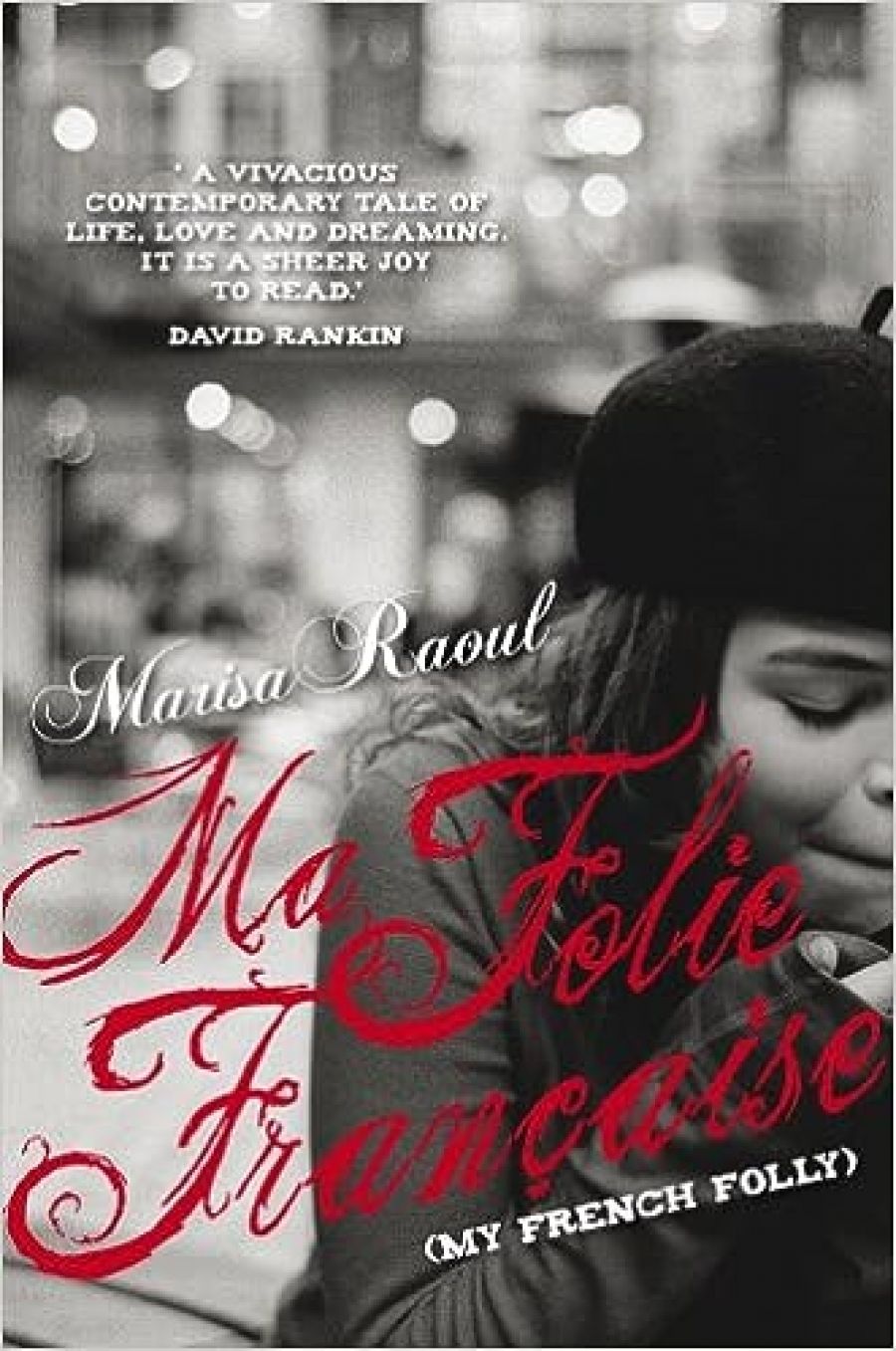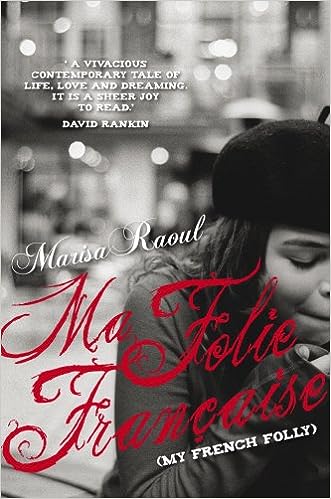
- Free Article: No
- Contents Category: Memoir
- Review Article: Yes
- Article Title: A year in italics
- Online Only: No
- Custom Highlight Text:
Marisa Raoul’s memoir recounts the ten years she spent living and working with her husband in France. With French travel memoirs lining bookshop shelves – such as Ellie Nielsen’s Buying a Piece of Paris (2007), Mark Greenside’s I’ll Never Be French (no matter what I do) and Lucy Knisley’s French Milk (both 2008) and, of course, Peter Mayle’s wildly popular A Year in Provence (1991) – Raoul is treading safe, and commercially viable, waters.
- Book 1 Title: Ma Folie Française
- Book 1 Biblio: Transit Lounge, $29.95 pb, 195 pp
- Book 1 Cover Small (400 x 600):

The jetsetter lifestyle soon takes its toll: Marisa is diagnosed with chronic fatigue syndrome. Her doctor advises a drastic change: leave Sydney and live a ‘cleaner and more holistic existence elsewhere’. Astounded by low prices for rural real estate in south-west France, the couple decide to move to the village of Treignac-sur-Vézère and purchase a ‘solid, triple storey façade of 16th century, sculpted granite’. Here they establish a bed-and-breakfast, which they will run successfully for ten years.
Ma Folie Française is a light, breezy sort of memoir. It does not take itself too seriously – and nor should its audience. Do not expect erudite observations on cultural differentiations, linguistic and social challenges, or the political climate of pre-millennial France. Raoul espouses a fabulist lesson about the fancies of childhood: with consideration and determination, it is possible to achieve your dreams. ‘My childhood fantasies,’ writes Raoul, ‘became adult ones.’ Treignac-sur-Vézère is a charming village. Reminiscent of Joanne Harris’s whimsical Chocolat (1999), Raoul details its quaint attributes to strong effect: the grey slate roofs, the Virginia creepers, the al fresco market hall and the twisted bell-tower of Notre-Dame-de-la-Paix.
The transformation of the couple’s home and business – ‘an empty shell of resplendent, golden granite, in the heart of a fairytale village of medieval beauty, deep in the gentle southern hills’ – is a fascinating process. The edifice harbours peculiar secrets; the Raouls’ attempt to excavate a secret cellar is one of the funnier episodes in the book.
Ma Folie Française, however, can be rather indulgent. Raoul is a dominating narrator; at times she is unpleasant. Her comments about her husband’s stepmother, Ginnette, are impolite: ‘Jean’s father must have been instantly besotted by Ginnette’s gourmet skills as a young widower, for she is sadly devoid of good looks or soft feminine charms. The time-honoured adage of winning a man via his stomach stands victorious and well proven within this couple.’ Such nastiness comes without provocation or explanation; Ginnette, perfectly amiable, does nothing but prepare the family a delicious lunch – rewarded with Raoul’s snipe: ‘[Ginnette] has exquisite taste in her choice of linen and glassware, for such a simple peasant’s daughter.’
Modesty, too, does not become Raoul; she is particularly fond of digressions about her own good fortune:
I’m drawn to attractive people. I am a self confessed [sic] aesthete and have always been blessed with especially handsome boyfriends. It’s not a vanity thing, it’s just who I am. I am drawn to all things visually pleasing and I love to surround myself with them, in all their possible forms. My own genetically mixed heritage has blessed me with a certain curvaceous, olive skinned, dark eyed sensuality, which I suppose some people find attractive. I don’t regard it as beauty myself, but I have never lacked male attention, so something must be in the right place.
Am I being unfair? Modesty is by no means a requisite virtue of a good memoirist, but Raoul hardly deserves kudos for giggling, ‘I only had to open my pretty mouth and say something incorrectly, to make half the population swoon. The male half, most importantly.’ Far from endearing, these twittish asides steer the reader from the core strengths of the book: the minutiae of running the bed-and-breakfast, the couple’s travel around the region, the various characters they encounter.
Disappointingly, Jean remains a peripheral figure, absent from the daily operations of the business, returning at night cooing ‘Cherie’ and pouring Côte de Provence. A more nuanced portrait of their marriage would have added extra bite. The dialogue they do share is stilted and cheesy, occasionally bordering on the parodic. The villagers are similarly caricatured: the gossipy grocery store owner and the tradesmen, ‘“Gaulloise hanging from the lower lip” type of men’, for example.
Ma Folie Française includes one-page recipes of local cuisine, such as buckwheat crêpes and tarte aux noix. Like the proverbial soufflé, this memoir – with all the right, tasty ingredients – fails to deliver the goods.


Comments powered by CComment